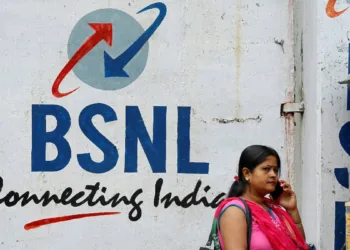The K-pop landscape witnessed another historic moment in June 2025 as BTS solidified their position as the world’s most popular K-pop group, according to the latest brand reputation rankings released by the Korean Business Research Institute. BTS has officially extended their long-standing prowess on the popularity rankings! As per the latest data from the Korean Business Research Institute, which analyses K-pop idol group brand big data from May 19 to June 19, 2025, revealing the top teams that the masses have shown an interest in.
The septet’s remarkable achievement comes at a pivotal time as they prepare for their highly anticipated full group reunion following the completion of military service obligations by several members. This latest triumph represents more than just numbers on a chart—it showcases the enduring power of BTS’s global influence and their ability to maintain relevance even during periods of reduced group activities.
The competition was fierce, with industry titans SEVENTEEN and BLACKPINK trailing closely behind, but BTS’s strategic content releases during FESTA 2025 and their 12th debut anniversary celebrations proved instrumental in securing their dominance. As the group prepares for what many anticipate will be their most significant comeback yet, this ranking victory serves as a testament to their unshakeable bond with fans worldwide and their continued evolution as cultural ambassadors of Korean music.
Table of Contents
BTS Secures Top Position with Record-Breaking Score
BTS managed to grab the top spot in this month’s popularity list with a score of 6,968,708, demonstrating their exceptional brand strength and fan engagement levels that continue to set industry standards. This impressive score reflects not just their musical achievements but their comprehensive approach to content creation and fan interaction that has become a blueprint for success in the modern K-pop industry. The group’s ability to maintain such high engagement levels despite being in different phases of their military service commitments speaks volumes about the depth of their fanbase loyalty and the strategic planning of their content releases.

BTS scored a brand reputation index of 6,968,708, with sub-scores including a participation index of 194,628, media index of 877,282, communication index of 2,224,029, and community index of 3,672,770. This represents a 4.22% rise from the previous month. The breakdown of these scores reveals interesting insights into how BTS maintains their popularity across different metrics. Their community index score of over 3.6 million points particularly highlights their strong connection with fans and their ability to generate meaningful conversations and interactions across various online platforms.
The timing of this achievement is particularly significant as it coincides with FESTA 2025, their annual anniversary celebration that has become a cultural phenomenon in its own right. During this period, the group released special content featuring Jin and J-Hope, along with nostalgic throwback materials that resonated deeply with both longtime fans and newcomers to their music. This strategic content release schedule demonstrates their understanding of audience engagement and their ability to create meaningful moments that translate into measurable brand value increases.
SEVENTEEN’s Strong Performance and Competitive Positioning
SEVENTEEN has climbed back to the second spot, with a 5,993,949 score on the brand reputation index. Their upcoming tour locked a 39.05 % growth from 4,310,647 in May, following the aftereffects of a group concert and variety content release. This remarkable 39% growth showcases SEVENTEEN’s impressive momentum and their ability to capitalize on live performance announcements and fan engagement strategies. Their climb back to the second position represents a significant achievement in the highly competitive K-pop landscape, where maintaining consistent high rankings requires continuous innovation and fan connection.
SEVENTEEN’s success story in June 2025 is particularly noteworthy because it demonstrates the power of strategic tour announcements and variety content in driving brand reputation scores. Their recent concert performances and variety show appearances have clearly resonated with audiences, translating into substantial increases in their brand metrics. The group’s ability to generate such significant growth month-over-month illustrates their evolving appeal and their effective use of multiple entertainment platforms to reach diverse audience segments.
The competitive dynamic between BTS and SEVENTEEN has been one of the most fascinating aspects of K-pop rankings throughout 2025. Both groups have traded positions at various points, with SEVENTEEN holding the top spot earlier in the year before BTS reclaimed their dominance. This healthy competition has pushed both groups to innovate and engage with their audiences in increasingly creative ways, ultimately benefiting the entire K-pop industry by raising standards for fan engagement and content quality.
BLACKPINK’s Strategic Positioning Ahead of Major Comeback
They exchange spots with BLACKPINK, dropping down to the 3rd place, gaining 4,152,491 index in June. The girl group is prepping for an upcoming World Tour called DEADLINE, starting off in South Korea and going to multiple cities around the globe. Despite dropping to third place, BLACKPINK’s score of over 4.1 million points represents substantial brand strength and demonstrates their continued relevance in the global K-pop conversation. Their positioning becomes even more significant when considering their upcoming activities and the strategic timing of their major announcements.
The anticipation surrounding BLACKPINK’s “DEADLINE” world tour has created unprecedented excitement among fans worldwide. Their first all-stadium tour, it will begin on July 5, 2025, at the Goyang Stadium in South Korea, and is currently set to conclude on January 25, 2026, at the Kai Tak Stadium in Hong Kong. This ambitious tour schedule, spanning multiple continents and featuring exclusively stadium venues, represents one of the most significant undertakings by any K-pop group and positions BLACKPINK for potential ranking improvements in the coming months.

YG Entertainment’s strategic approach to BLACKPINK’s comeback has been carefully orchestrated to maximize impact. So far, YG Entertainment has hinted at a July release for their new music, creating a perfect synergy between new music releases and their world tour launch. This timing strategy reflects industry best practices for maintaining momentum and suggests that BLACKPINK’s brand reputation scores may see significant increases as their comeback activities intensify throughout the summer months.
The Rise of Girl Groups in K-pop Rankings
The June 2025 rankings reveal a fascinating trend in K-pop popularity dynamics, with female groups demonstrating unprecedented strength across the top 10 positions. The top 5 list includes IVE and BIGBANG with their own 3,629,408 and 2,730,536 brand reputation indexes, respectively. Wrapping off the top 10 list are groups, aespa, i-dle, Oh My Girl, TWICE, and Red Velvet, showing the massive takeover from female teams, as only 3 all-boys names fall in the top ranks. This gender distribution in the rankings represents a significant shift in K-pop consumption patterns and highlights the growing influence of female groups in the global music landscape.
IVE’s inclusion in the top five with a score of 3,629,408 points demonstrates the new generation of K-pop groups’ ability to compete with established veterans. Their success story represents the evolving nature of K-pop, where newer groups can achieve significant brand recognition through strategic content creation, strong musical releases, and effective fan engagement strategies. The group’s ability to maintain such high scores alongside industry legends speaks to their artistic merit and commercial appeal.
The dominance of girl groups in the lower half of the top 10 rankings tells a compelling story about audience preferences and industry trends. Groups like aespa, (G)I-DLE, Oh My Girl, TWICE, and Red Velvet have all carved out distinct identities and fanbase niches that translate into consistent brand reputation success. This diversity of successful female acts suggests a healthy and competitive environment where different musical styles and concepts can coexist and thrive, ultimately enriching the K-pop ecosystem.

Impact of Military Service on BTS’s Continued Success
BTS’s ability to maintain their top ranking position while navigating military service obligations represents one of the most remarkable achievements in modern entertainment history. The group’s strategic approach to content creation during this transitional period has set new standards for how major acts can maintain relevance and fan engagement during temporary absences. Their success demonstrates the power of well-planned content releases, strategic collaborations between available members, and the deep emotional connection they have established with their global audience over more than a decade of consistent excellence.
The FESTA 2025 celebrations proved particularly effective in maintaining BTS’s brand strength during this challenging period. By focusing on Jin and J-Hope’s available participation while incorporating nostalgic elements that celebrate their entire journey, the group created content that satisfied existing fans while potentially attracting new audiences. This approach showcases their understanding of their brand value and their ability to adapt their promotional strategies to current circumstances without compromising their artistic integrity or fan connection.
Looking ahead, BTS’s ranking success during the military service period positions them exceptionally well for their eventual full group return. The maintained fan loyalty and brand strength evident in these rankings suggest that their comeback will likely generate unprecedented levels of excitement and commercial success. Industry analysts view their current ranking performance as a strong indicator of their potential to achieve even greater heights once all members are available for full group activities again.
The Methodology Behind Brand Reputation Rankings
Understanding the Korean Business Research Institute’s methodology for calculating brand reputation rankings provides crucial context for interpreting these results and their significance in the broader K-pop industry. The rankings are based on comprehensive big data analysis that examines multiple factors including social media engagement, news coverage, online community discussions, and various forms of digital interaction over specific time periods. This scientific approach ensures that the rankings reflect genuine public interest and engagement rather than artificial manipulation or temporary spikes in attention.

The multi-faceted nature of these calculations means that success in brand reputation rankings requires sustained excellence across multiple platforms and engagement types. Groups cannot simply rely on music releases or individual viral moments to maintain high positions; instead, they must demonstrate consistent ability to generate meaningful conversations, maintain media presence, and foster active fan communities. This comprehensive evaluation system explains why established groups like BTS, SEVENTEEN, and BLACKPINK continue to dominate rankings despite varying levels of current activity.
The monthly nature of these rankings also provides valuable insights into the dynamic nature of K-pop popularity and the importance of consistent engagement strategies. The ability to track month-to-month changes allows for analysis of which activities and strategies most effectively drive brand reputation improvements, providing valuable data for industry professionals and groups seeking to optimize their promotional approaches and fan engagement methods.
Global Implications of K-pop Ranking Success
The international significance of these brand reputation rankings extends far beyond simple popularity measurements, reflecting broader trends in global entertainment consumption and cultural influence. BTS’s continued dominance in these rankings reinforces their position as cultural ambassadors and demonstrates the sustained global appetite for K-pop content even during periods of reduced group activity. Their success provides valuable insights into how entertainment properties can maintain international relevance through strategic content creation and fan community management.
The competitive landscape revealed by these rankings also highlights the increasing sophistication of the global K-pop market. The presence of multiple girl groups in the top 10, alongside established male groups, suggests a mature market where diverse musical styles and concepts can succeed simultaneously. This diversity creates opportunities for international expansion and collaboration, as different groups can appeal to various demographic segments and cultural preferences across global markets.
The ranking methodology’s emphasis on community engagement and sustained conversation generation aligns with broader trends in digital marketing and audience development. The success of groups in these rankings provides case studies for how entertainment properties can build and maintain engaged communities in the digital age, offering lessons applicable beyond the K-pop industry to broader entertainment and marketing sectors.
Industry Response and Future Predictions
The June 2025 brand reputation rankings have generated significant discussion within the K-pop industry, with entertainment companies and industry professionals analyzing the results for strategic insights and competitive intelligence. The success patterns evident in these rankings influence investment decisions, promotional strategies, and content creation approaches across the industry. Companies managing groups that performed well in the rankings often increase their promotional budgets and accelerate comeback schedules, while those with lower-ranking groups reassess their strategies and explore new approaches to fan engagement.
The rankings also influence collaboration opportunities and industry partnerships. Groups with strong brand reputation scores often receive more lucrative endorsement deals, collaboration requests, and international promotion opportunities. This creates a positive feedback loop where ranking success leads to increased opportunities, which can further enhance brand reputation scores in future measurement periods. Understanding these dynamics helps explain why groups invest significant resources in activities that drive ranking improvements.
Looking toward the remainder of 2025, industry analysts predict that the competitive landscape will intensify as major groups announce comebacks and tour activities. BLACKPINK’s upcoming “DEADLINE” tour and anticipated music releases are expected to significantly impact future rankings, while BTS’s preparation for their full group return will likely influence their continued ranking performance. SEVENTEEN’s momentum and other groups’ strategic activities suggest that the coming months will feature particularly dynamic ranking movements and increased competition for top positions.
Fan Community Impact and Cultural Significance
The brand reputation rankings serve as more than statistical measures; they represent validation and recognition for the countless hours of support, streaming, and promotion that fan communities worldwide dedicate to their favorite groups. For BTS fans, known as ARMY, the June 2025 ranking success represents confirmation of their continued dedication and effective support during a challenging period for the group. The ranking methodology’s inclusion of community engagement metrics means that fan activities directly contribute to their favorite groups’ success, creating a meaningful connection between fan effort and measurable results.
The cultural significance of these rankings extends to the broader Korean Wave (Hallyu) phenomenon and Korea’s soft power projection globally. High-ranking K-pop groups serve as cultural ambassadors, introducing international audiences to Korean language, culture, and values through their music and content. BTS’s continued ranking success, even during military service, demonstrates the sustained international interest in Korean culture and the effectiveness of K-pop as a cultural export strategy.
The rankings also influence how K-pop groups approach content creation and fan interaction strategies. Groups study ranking methodologies and successful competitors to optimize their own approaches to social media engagement, content scheduling, and community building. This creates an environment of continuous innovation in fan engagement techniques, ultimately benefiting fans through improved content quality and more meaningful interaction opportunities with their favorite artists.
FAQs
Q1: How are K-pop brand reputation rankings calculated, and what factors influence the scores?
The Korean Business Research Institute calculates brand reputation rankings through comprehensive big data analysis covering multiple metrics. BTS scored a brand reputation index of 6,968,708, with sub-scores including a participation index of 194,628, media index of 877,282, communication index of 2,224,029, and community index of 3,672,770. The methodology includes analyzing social media engagement, news coverage, online community discussions, and various forms of digital interaction over specific time periods, typically monthly. These rankings reflect genuine public interest and sustained engagement rather than temporary viral moments.
Q2: What impact do these rankings have on K-pop groups’ careers and opportunities?
Brand reputation rankings significantly influence K-pop groups’ commercial opportunities and industry positioning. Groups with higher rankings typically receive more lucrative endorsement deals, collaboration requests, and international promotion opportunities. The rankings also affect investment decisions by entertainment companies, with successful groups often receiving increased promotional budgets and accelerated comeback schedules. For fans, these rankings provide validation of their support efforts and can influence voting behaviors and streaming activities for future releases and activities.









Sorry, but Seventeen has the highest brand ranking value for June, BTS was second….
Seventeen: 7,027,417
BTS: 6,843,685